Greetings! Emma the Intern here. I’ll be comparing movie and TV adaptations of Vonnegut’s work, starting with “Harrison Bergeron” in this post. I found two adaptations of Vonnegut’s most famous short story: the 1995 Canadian made-for-TV film Harrison Bergeron and the 2009 Moving Picture Institute short film 2081. In this post, I’ll be looking at 2081.
This 2009 film, directed and written by Chandler Tuttle, stars Armie Hammer as Harrison, James Cosmo as George, and Julie Hagerty as Hazel. It’s about 22 minutes, making it the perfect length to show in a classroom with time for discussion or an activity afterwards. That was my first exposure to this film: in my eighth-grade social studies classroom, the day after we’d read the short story in English class.
Whether or not the film is faithful to the original story depends on what you look at. The setup is awfully similar; we start and end with the parents watching TV in their living room, and we get shots of Harrison throwing off his handicaps and throwing around a sultry ballerina, just as he did in the story. And, of course, the death scene is nearly the same. But there are two major differences I want to touch on – and bear in mind that different does not mean bad.
The first difference is the dramatization of Harrison’s takeover and death in this film. In the short story, Harrison just waltzed in and informed the people watching the ballet that he was the Emperor, gosh darn it, the Emperor! He was the best! He was fourteen and no one understood him! (Perhaps that last was more of an implication.) He also wore a clown nose to make himself look ugly. But Armie Hammer’s Harrison is 1) much older, 2) much handsomer due to the lack of clown gear, and 3) has planned this whole thing much better. His short, impassioned speech shows he wants to improve the lives of his fellow citizens, not just yell about how cool he is. He also has a fake bomb that shuts down the government broadcasting system, keeping audiences tuned in to his shenanigans. This guy doesn’t mess around.

This is a still from 2081. Harrison’s a looker, isn’t he? He’s also obviously not 14.
The second major difference is the presentation of Harrison’s parents. Specifically, his father, George. In Vonnegut’s story, each parent is given an equal role in the narrative. Hazel gets a few more lines, and George gets a little more prose description. But 2081 really is George’s movie. Hazel’s in the kitchen washing dishes for most of the ballet show, so it’s George alone who reacts to what’s occurring onscreen. It’s George who recognizes his son, watches him dance, watches him die.

George Harrison shuddering due to a noise generated by his mental handicap.
To show the contrast between the story and the film, I’ll add in Vonnegut’s text of George and Hazel’s post-show conversation:
“You been crying,” he said to Hazel.
“Yup, ” she said.
“What about?” he said.
“I forget,” she said. “Something real sad on television.”
“What was it?” he said.
“It’s all kind of mixed up in my mind,” said Hazel.
“Forget sad things,” said George.
“I always do,” said Hazel.
And here’s the dialogue in 2081 at the same point in time:
Hazel: That last one sounded kinda like a gunshot. [Some time passes and she notices George crying.] Aw, hon, you look upset. What’s wrong?
George: I . . . um . . . I’m not sure. Something sad on television, I think . . .
Hazel: Well . . . you should forget sad things anyway. I always do.
2081 isn’t Harrison’s movie. It’s George’s movie. And I love that it’s George’s movie. It makes it so terrible. It makes it so good. You should check it out.

If you’d like to read the story “Harrison Bergeron” for the first time or just to refresh your memory, visit this link.



